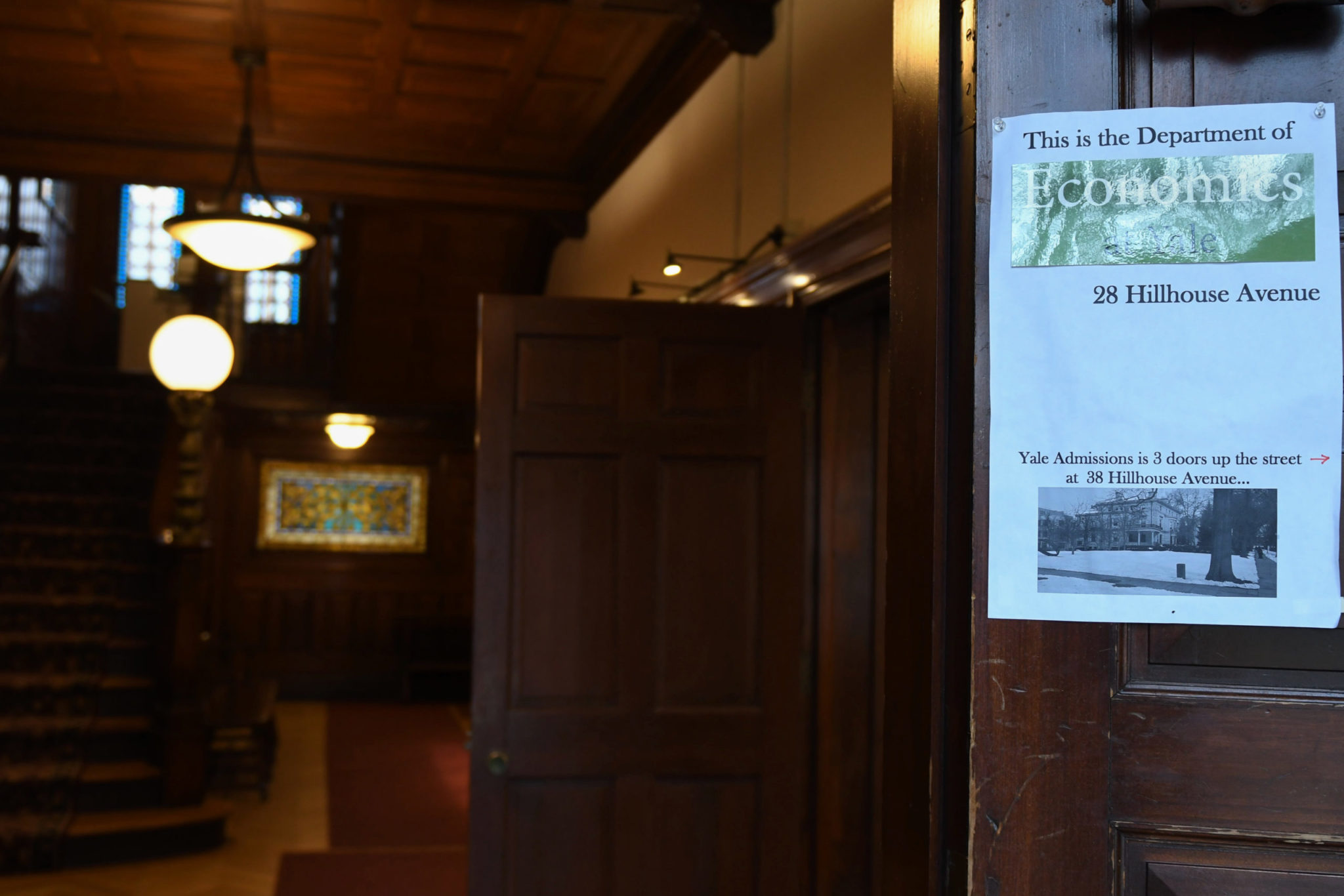
David Zheng, Senior Photographer
The New York Times recently published an article on gender bias in the field of economics with insights from experts, including Yale economist Judith Chevalier.
Research has indicated that women are disadvantaged in economics. According to the New York Times article, women often avoid speaking in conferences or seminars, are less likely to be invited to these conferences and are discriminated against and harassed in the field more often than men are. Yale students and faculty spoke to the News about the article and the gender gap in economics. Some mentioned that the discrimination and participation gap in economics is not just limited to gender, but also involves race.
“My first impression [of the article] is that economists spend a lot of time studying discrimination in many fields,” said Director of the Economic Growth Center at Yale Rohini Pande. “But the fact that economists have now turned inwards and are looking into what is happening with their own profession is, at one level, analytically a reflection of trying to understand to what extent are the barriers that lead to unequal representation in any field have to do with discrimination.”
The research from this particular New York Times article was inspired by an instance when economists Alicia Sasser Modestino and Justin Wolfers observed fellow economist Rebecca Diamond being frequently interrupted with belittling questions from the audience while sharing her economic research, unlike the male presenter who followed her. Modestino and Wolfers went on to gather data from across the country — they found that women received 12 percent more questions than men during conferences and were more likely to get patronizing or hostile questions. Their findings were published in a paper for which even the co-contributors “declined to have their names published out of fear of retaliation.”
Pande shared her personal experience with gender bias. Growing up in India, Pande said, her supportive family helped her avoid being deterred from the field of economics. When Pande moved to England, she faced roadblocks but noted that she was unsure whether they were due to her gender or her race.
Pande noted that she now has a clearer sense of the gender bias in economics when looking into the experiences of her students who have had people doubt their presence in the field.
Naasey Kanko Arthur ’21 found the article very relevant to her as an economics and mathematics major and for all women and minorities in economics at Yale.
“Being both a Black woman and international student from Ghana, my first couple of semesters in the major felt very isolating,” Kanko Arthur said.
Specifically, Kanko Arthur noted class discussions that centered on contrasting “Western economic success” to the economics of developing countries as an instance in which she felt uncomfortable in the Economics Department at Yale.
The recently published article noted that the hostility toward women in these conferences and seminars can inhibit meaningful discussion and prevent new ideas from being made.
During her sophomore year, Kanko Arthur worked as a research assistant on a project on gender discrimination at economics conferences. She noted that she “was exposed to the breadth of literature that discussed the issues women and minorities faced at various phases of the economics pipeline.”
Pande noted that in recent years, more individuals have become aware of the structural biases in the field of economics.
Pande said that recently, the University’s Economics Department has attempted to increase representation of women and minorities as presenters for conferences, held events to celebrate the work of female economists and held advisory meetings about classes. The department has also provided more resources to create an atmosphere of mentorship and support for minorities in economics.
“I think trying to ensure you have a network you can turn to, your own peers and also faculty, is very important especially in a place like Yale, where there are a number of female economic faculty,” Pande said.
Kanko Arthur emphasized the importance of institutions ensuring that they are welcoming and representative of all. She noted that joining the student group Women in Economics and connecting with Ebonya Washington, the director of undergraduate studies for the economics major, helped reassure her that she could thrive in the major.
Iris Li ’24, a potential economics and mathematics major, shared similar sentiments as Kanko Arthur and Pande. While Li noted that women are more likely to be discouraged than encouraged in the major, she believes that progress is being made to narrow the gap for minorities in economics.
Pande, Kanko Arthur and Li are optimistic about the future of women in economics due to the ongoing research on the issue, as well as the efforts the University has made to help women navigate the field of economics.
In 2020, there were 71 female and 113 male seniors who were economics majors at Yale College.
Eda Aker | eda.aker@yale.edu










